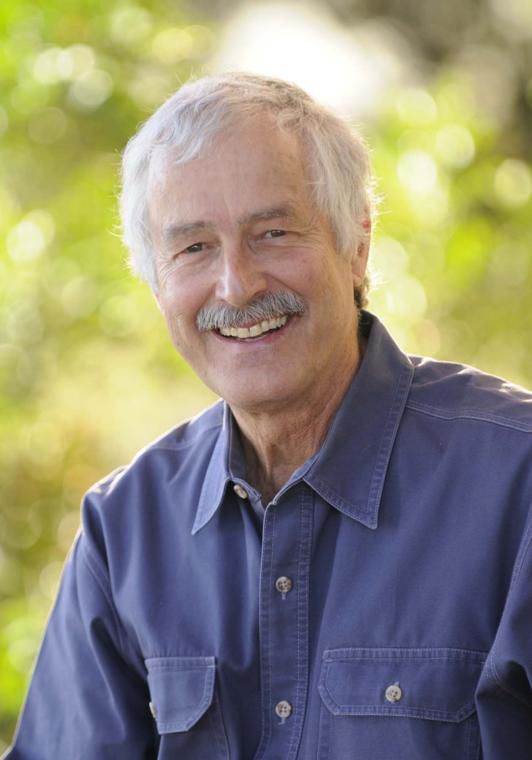A judge has ruled that Grand County is correct to have initiated the process for how the county’s form of government should change under a new state law.
Utah House Bill 224 mandates a change in Grand County’s current council form of government by 2020. The current and nominally nonpartisan, seven-member Grand County Council does not meet one of the four state-approved forms of government laid out in House Bill 224.
When House Bill 224 was signed into law in 2018, a local GOP citizen group filed a petition in the county with the intent to proceed forward with the process to change the county government.
The citizen group, which includes Grand County Republican Party chair Jeramy Day and the party’s former chair Lynn Jackson, insisted their citizen group would have representation as the county’s form of government changes over.
But the Grand County Council balked at the local GOP citizen group’s petition to initiate the change of government process, and soon after created its own resolution and petition to initiate the change of government process.
The issue ended up before Grand County voters on Nov. 6 to ask citizens if they want to proceed forward with establishing a study committee to review the alternative forms of government before choosing one by 2020. Otherwise, without a study committee, the county’s government would become a three-person commission by default under the new law. Grand County’s voters elected to have a study committee made to choose a form of government, rather than to reorganize into a three-person commission by default.
The next step is forming an appointment council to create the study committee. The study committee will review the four potential state-mandated forms of government that Grand County can choose from: a three-member commission; a five- to seven-member commission; a council with a county executive who has veto powers; or a council with an appointed county manager.
Leading up to the Nov. 6 election, the council and the citizen group each speculated over differing legal advice and interpretations on House Bill 224.
Following the voter approval for creating a study committee, the GOP citizen group sued Grand County and the Grand County Council, including then-chair Mary McGann, asking 7th District Court Judge Don Torgerson to stop the council’s attempt to “hijack” the process to initiate the change the government.
But Torgerson ruled on Feb. 1 that only the Grand County Council has the legal means to initiate this process in changing the form of government.
In analyzing House Bill 224, Torgerson pointed to the “clear” language in House Bill 224 that says the counties not in compliance (meaning that the county does not already operate with one of the four state-approved forms of government, such as Grand County) must have the process initiated by its legislative body (the Grand County Council). The citizen GOP group is not permitted to initiate the process to change the form of government because the county is not in compliance with state law, according to the judge’s ruling.
Grand County’s administrator, Ruth Dillon, sent an email to people involved in the matter on Feb. 1 saying that upon the judge’s decision, the county then had 10 days to convene the first meeting of the appointment council.
It’s not clear from the email or online county records if there are any open public meetings where discussions are taking place on House Bill 224, or whether Utah open public meeting laws apply to the appointment council meetings.
Regarding information on this issue, the Moab Sun News has so far received only the email from Dillon on Feb. 1 with the notification of the judge’s ruling and an update that an appointment council meeting would be organized.
Walt Dabney is one of two people who has made it onto the appointment council, by way of appointment of the state legislative delegation.
He said the appointment council meeting was being held on Feb. 13 at 2 p.m. to select three others for the appointment council. Those five people will then choose the members of the study committee. Dabney said the appointment council meeting was not open to the public.
Dabney said that there are no conversations happening with the appointment council on the form of government itself, but only on the organizational process to move forward with the submitted applications from community members interested in joining the study committee.
“We’re not just sitting here thinking of people to appoint, these are people with applications who have submitted these to be a party of this process,” Dabney said.
Rex Tanner was on the appointment council, Dabney said, but he has been replaced by the legislative delegation with Jeramy Day, per the request of Tanner himself. Dabney said Tanner had asked the state legislators to be replaced because he is currently on a board and so cannot also serve on the study committee.
Though Dabney and others involved in the process have told the Moab Sun News that the state legislative delegation is involved in the appointment council process, the Moab Sun News has not received any communication or records from state or any officials involved in the process.
It is not clear at this time if future meetings of the appointment council or study committee will be open to the public.
Public meetings on the issue may be held at a later date
“We’re not just sitting here thinking of people to appoint, these are people with applications who have submitted these to be a party of this process.”




